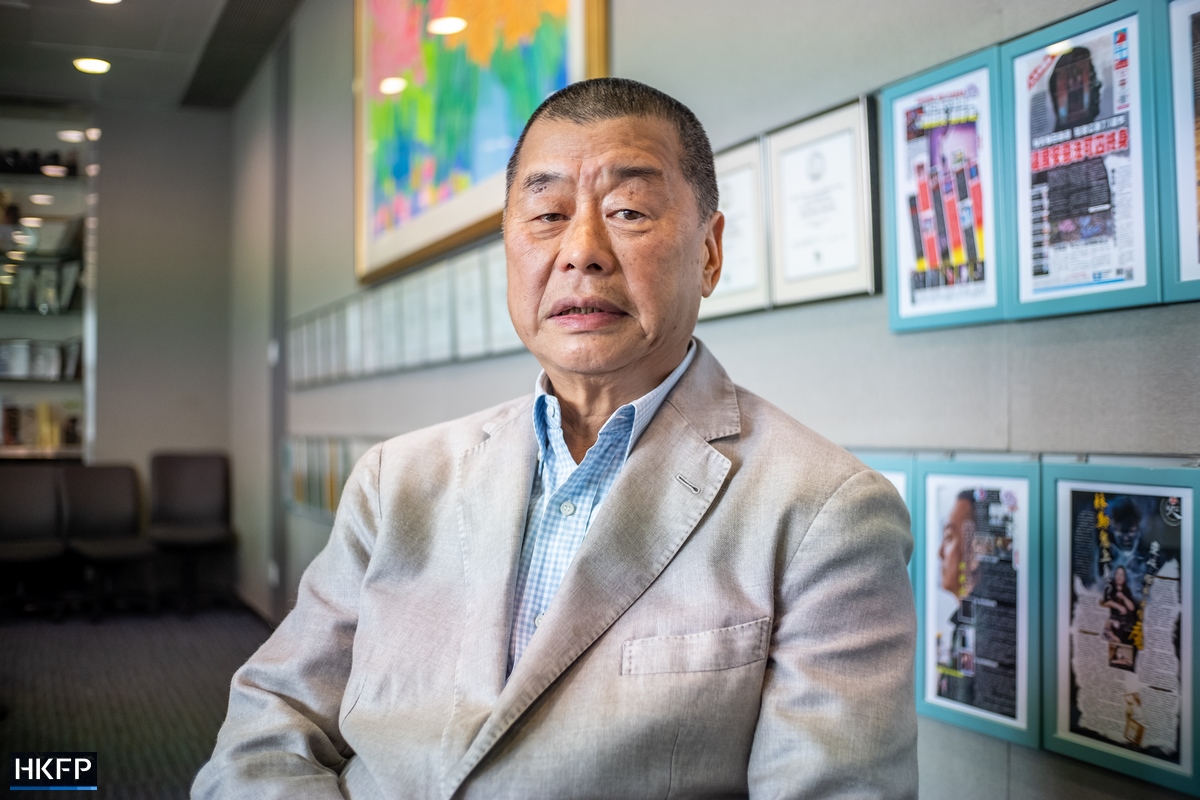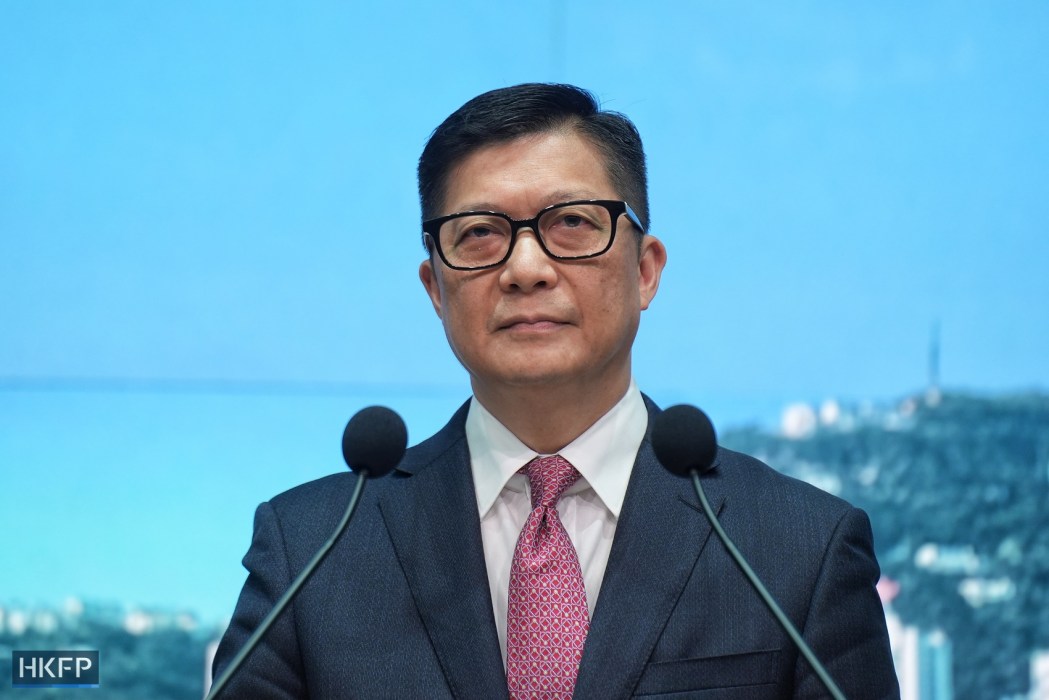A Hong Kong court will enhance security and implement special seating arrangements for pro-democracy media mogul Jimmy Lai’s high-profile national security case, set to begin on Monday.

Speaking to reporters on Friday, Secretary for Security Chris Tang said police officers would step up patrols and deploy bomb-detection sniffer dogs in and around the court.
“Anyone who attempts to disturb the legal proceedings or attempts to threaten people involved in the legal proceedings, we will not hesitate,” Tang said in Cantonese. “We will take firm action.”
Beijing inserted national security legislation directly into Hong Kong’s mini-constitution in June 2020 following a year of pro-democracy protests and unrest. It criminalised subversion, secession, collusion with foreign forces and terrorist acts – broadly defined to include disruption to transport and other infrastructure. The move gave police sweeping new powers and led to hundreds of arrests amid new legal precedents, while dozens of civil society groups disappeared. The authorities say it restored stability and peace to the city, rejecting criticism from trade partners, the UN and NGOs.

Lai, the founder of the now-defunct Apple Daily newspaper, is set to appear at West Kowloon Law Courts Building on Monday for the first day of his national security trial.
The 76-year-old has been in custody since December 2020 and is currently serving a prison sentence for a separate fraud case.
In Monday’s trial, Lai stands accused of conspiring to collude with foreign forces, along with three companies related to the operations of the pro-democracy media outlet. The national security offence is punishable by up to life imprisonment.
The self-made millionaire and his former media outlet are also charged with conspiring to publish “seditious publication,” an offence under a colonial-era law that carries a maximum penalty of two years in prison.

Tang said on Friday that during “trials for these kind of cases” in the past, people had attempted to disrupt legal proceedings.
“We’ve noticed that many people, who are self-proclaimed courtwatchers, will harass prosecutors, make a commotion or even follow them to the toilet and disturb them,” Tang said without providing evidence. “What’s more, in the court, they shout and affect court proceedings.”
Tang said in addition to enhancing police mobilisation, authorities would also require court visitors to pass through x-ray checks. It is unclear, however, how this is different from the standard procedure at West Kowloon Law Courts Building, where all visitors must undergo screenings and bag inspections.

HKFP has reached out to the Judiciary and the Security Bureau for comment.
The Judiciary said in a notice on its website that there would be special seating arrangements for the trial. There would be a quota of 70 tickets in the main courtroom.
Staff will also set up four rooms as court extensions – with a total quota of 318 tickets – streaming live broadcasts of the proceedings in the main courtroom. There will be around 100 stand-by tickets available.
If ticket holders do not enter the court or the extensions, or have left their seats for 15 minutes, the tickets will be redistributed.
1,081 days behind bars
Lai’s case is expected to draw significant international attention.
The first day of the 47 democrats trial, another landmark national security trial, saw a heavy police presence and at least a dozen consulate representatives from countries including the UK, US, Sweden and Germany attending the trial.

Hundreds queued overnight for a courtroom ticket, including courtgoers who – when questioned by reporters – appeared to have no knowledge of what the case was about and left before the hearings started.
Local outlet InMedia reported that these courtgoers were being paid, with apparent links with a pro-establishment group, while HKFP reporters saw a group of people handling money at a nearby restaurant on the trial’s second day.
Lai’s trial was originally slated to begin in December last year but was postponed following the Hong Kong government’s attempts to prevent him from hiring a top British lawyer, Timothy Owen.

Owen was effectively barred from representing Lai after Beijing, at Hong Kong’s invitation, issued the first interpretation of the national security law, confirming that the city’s leader had the power to bar foreign counsel in such cases.
When Lai appears in court on Monday, he will already have been behind bars for 1,081 days.
His trial will be heard by three judges specially designated to hear national security cases but without a jury – a major departure from the city’s common law traditions but similar to the arrangements in another landmark national security trial involving 47 democrats.
Support HKFP | Policies & Ethics | Error/typo? | Contact Us | Newsletter | Transparency & Annual Report | Apps
Help safeguard press freedom & keep HKFP free for all readers by supporting our team

LATEST FROM HKFP
HKFP has an impartial stance, transparent funding, and balanced coverage guided by an Ethics Code and Corrections Policy.
Support press freedom & help us surpass 1,000 monthly Patrons: 100% independent, governed by an ethics code & not-for-profit.










